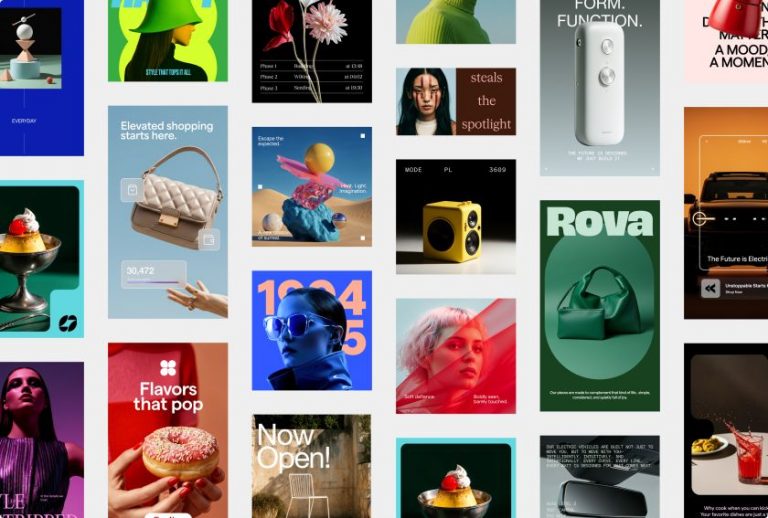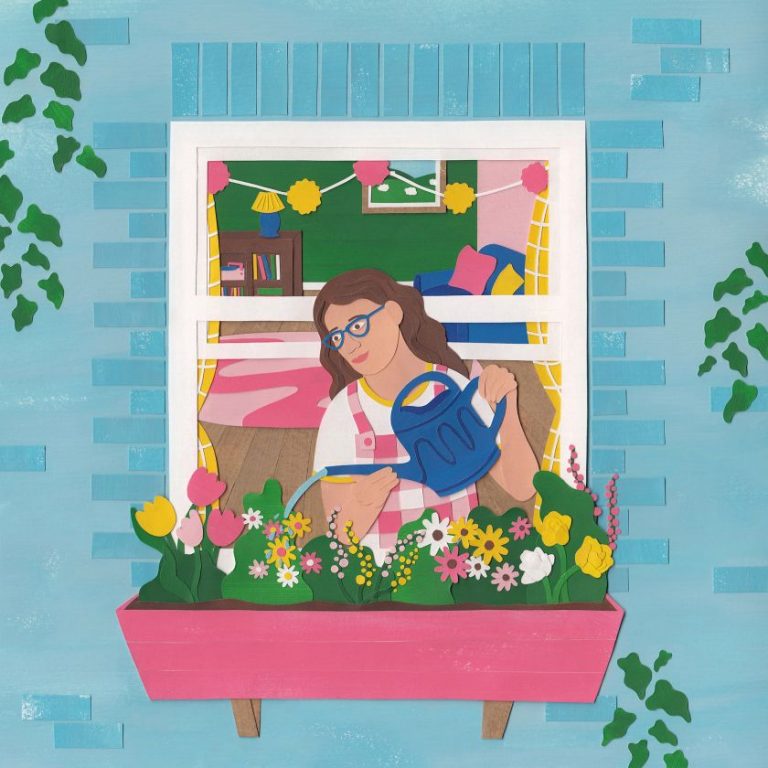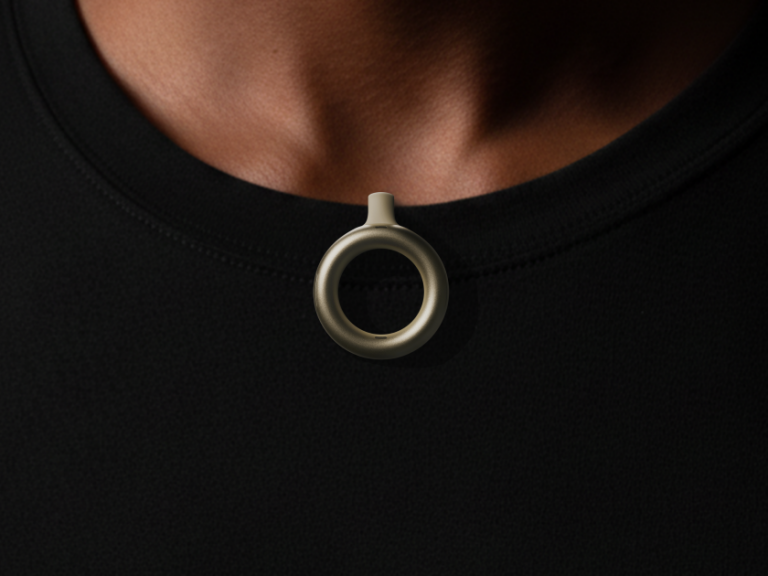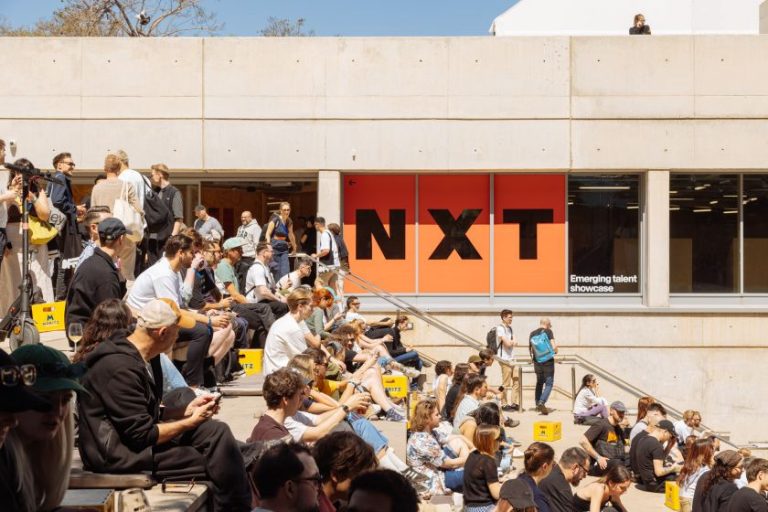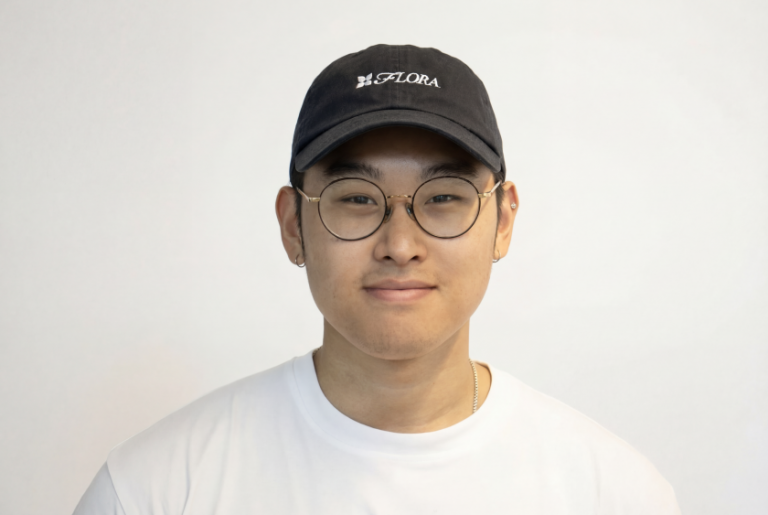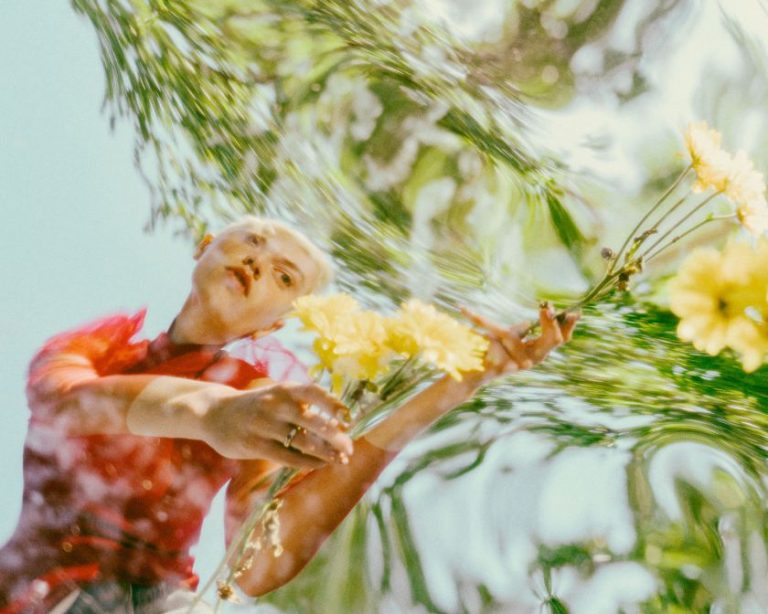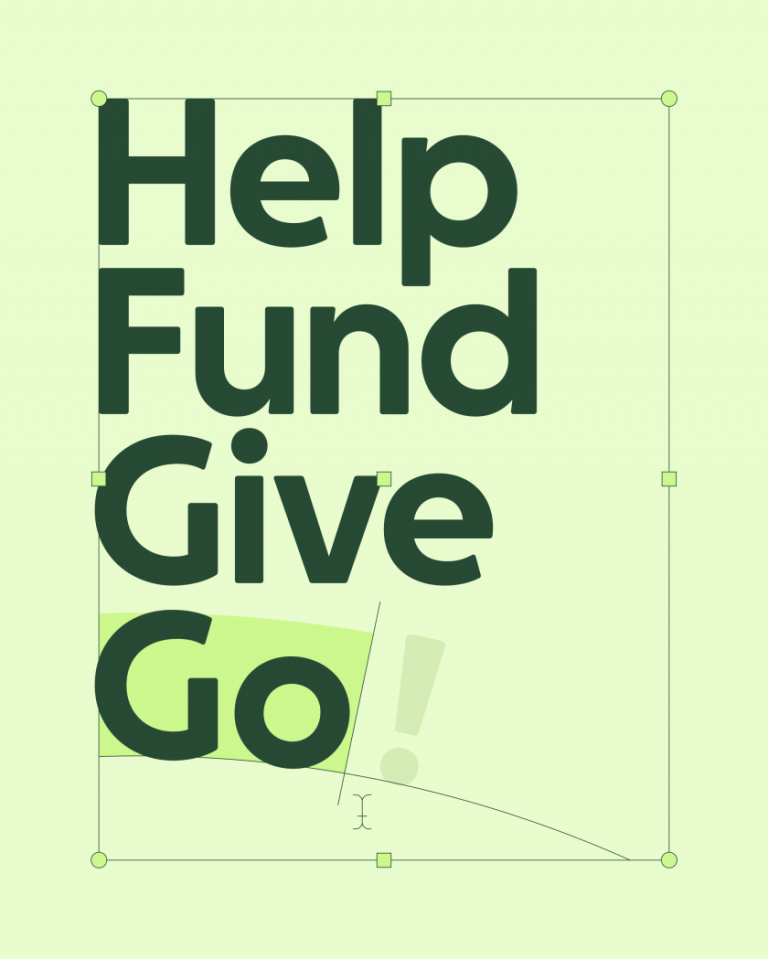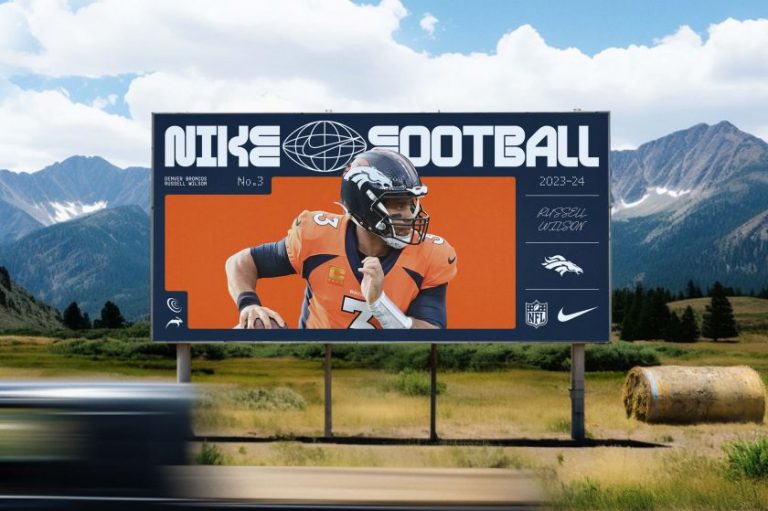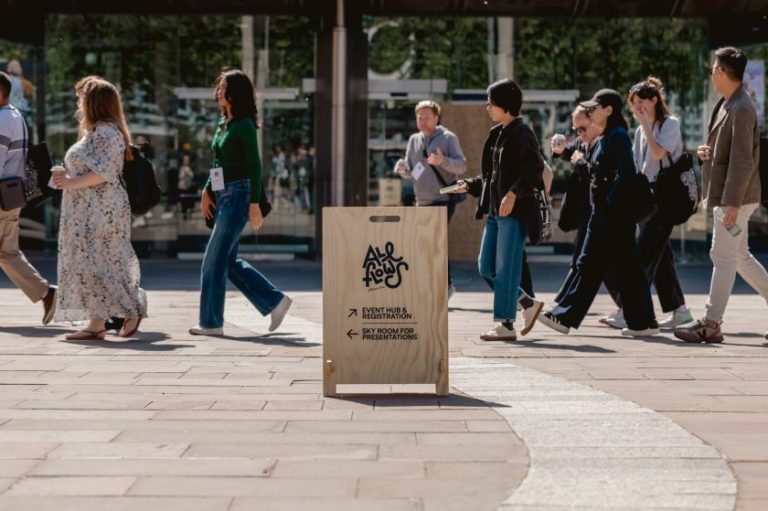We speak with Brian Collins, renowned designer and co-founder of COLLINS agency, about championing the possibilities of design and wanting to create a space for young talent to network.
Catching the effervescent Brian Collins for a few words at COLLINS House started to feel like Mission Impossible. He was very much the star of the show, with talent from across the industry clamouring to chat with him.
It says a lot about who he is that, when he finally had a free moment, he came to find us for a chat. This is only the second year that COLLINS House has been at Cannes Lions, but this is far from Brian’s first rodeo.
Together with his co-founder, Leland Maschmeyer, he launched their acclaimed agency in 2008 with a mission that still holds true today: “Design is not what we make. Design is what we make possible”.
Part of his ongoing work is challenging the reductive view that all designers do is make things look good.
Reflecting on his early Cannes experience, he doesn’t mince his words: “When design was made a new category at Cannes years ago, I was thrilled. But those early conversations became embalmed in marketing jargon. Starved of originality.
“Designers were cast not as thinkers or makers of meaning, but as exotic menials—handmaidens to advertising’s much louder machinery. Design was praised not for making things work better but for making things just look better. As if our vocation was meant only to seduce rather than reveal.
“Few were thinking about design as a distinct intellectual or business practice with a powerful legacy and philosophy.
“Yet, three years ago, we were invited by the good people at Cannes Lions to speak about our work. We accepted. The conversation had evolved for the better. So we’ve returned ever since. Because sometimes, the best way to change a story is to help push a better one into being.”
And when he stepped onto the Croisette?
“Oh my. The dazzling coastline is now all roped off. Shrink-wrapped. Covered. The beach is temporarily replaced by loud, corporate strip malls. The grand old French hotels stand here stunned—dolled up to pitch crypto platforms. Billboards and LED screens smother their glorious facades. Techno blares everywhere.
“Yes. There is a place for all that. Fine. But we thought this great city could also have an alternative place for creative people.”
This disconnect sparked the idea of creating something different. A Cannes experience — their way.
“My first experience of Cannes Lions was of a ridiculously beautiful, inviting place for grown-ups with good jobs. The Carlton Hotel was an always open, giant, crumbling Beaux-Arts stage where people with taste and brains held court from breakfast through a hangover. I would meet Sir John Hegarty, Susan Credle of FCB, Rick Boyko of Ogilvy, Cindy Gallop of BBH, Bob Greenberg, and Nick Law of R/GA there. Designers, writers, artists, directors, musicians, founders—drifted in and out of conversations that didn’t include words like ‘brandscape’.
“You could think. You could talk. You could sit on the Carlton Hotel beach without a wristband.
“But all of the big, powerful players now go and hide out at Hotel du Cap in Antibes instead. That’s miles and miles away.
“And today, the Carlton Hotel is insanely expensive. That’s good for rich folk, but what about all of the new, young, creative people who don’t have that kind of money but who still want to get into the conversation as I used to do?
“So, my team and I set out to recreate a place like that – where you can bump into all sorts of amazing people. Leaders. Novices. Easily. For free. Where guests are not forced to wear plastic lanyards. Where your identity is not reduced to your resume.”
COLLINS House had a strict no-lanyard policy. It’s intentionally designed as a refreshing, non-hierarchical space.
Big names like Sir John Hegarty, Will.i.am, Scott Galloway, Cindy Gallop, Liz Taylor of Ogilvy, Oscar-winning director Taiki Waititi, and Gap, Inc. CEO Richard Dickson have all visited and mingled with everyone from first-time studio owners and freelance illustrators to CMOs and CEOs of global agencies.
It’s refreshing to see someone of Brian’s calibre think beyond his own agenda and genuinely want to support other independent and emerging players.
He recognises how difficult it can be for brilliant creatives who don’t play the social media game to get noticed.
COLLINS House is a response to that as a place for enormously gifted people who may not be as social and find navigating the Croisette overwhelming.
He’s charming, affable, and inspiring, so naturally, we wanted to know what advice he’d give to someone trying to emulate his success.
“That would be a mistake,” he said. “A terrible, grave mistake. I’m no model. I’m not a guru. I can barely program my own coffee machine. But what you should do is work absurdly hard—like a squirrel on a double espresso hard—and become so good they can’t ignore you, no matter how much they want to.”
Brian, along with his team and partners, has put in years of hard work and advocates chasing mastery of craft over fame.
Although he isn’t against promotion, in fact, he encourages creating a bit of ‘hullabaloo’. He asks, “Why not learn to create a little noise about yourself—and your point of view? So your own voice is heard out in the world?”
He’s quick to credit the work of his team and partners, dropping names not for clout but in gratitude. Our conversation ends with an anecdote from his business partner, Leland.
“In the middle of a client meeting, Lee suddenly wrote down two words about who we are when we are at our best. ‘BE. VERY.’ Be very intense, very focused, very quiet, very flamboyant, very funny, very cerebral, very musical. Very people are the ones who help us make better sense of the life around us.”
‘Be.Very’. is the perfect takeaway from not just Brian and COLLINS House but from Cannes Lions at its best.
Look out for more nuggets of gold from Brian on The Creative Boom Podcast in September.

